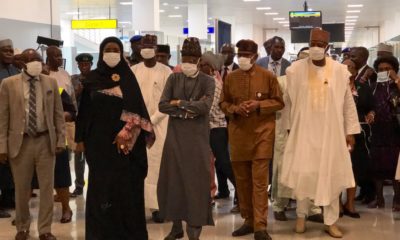Digital ID systems, a prerequisite for developing functional e-governance platforms, have been on the agendas of many emerging economies for quite some time.
However, the COVID-19 pandemic has reemphasized the importance of eIDs in providing social, medical and financial support to households and businesses.
Electronic identification allows citizens and businesses to prove their identity and access the governmental services online. It enables fully digital processes and eliminates the need for expensive and time-consuming manual operations. Such functionality has been crucial during the pandemic, especially for developing countries.
For example, in April Chile pre-enrolled millions of new recipients in social welfare programs, while Thailand, where over 28 million people applied for a new benefit for informal workers affected by the pandemic, filtered out those who had already received assistance from other projects. All of this, including the improved accessibility to medical services, has helped to mitigate the impact of COVID-19 on both the economy and the people.
“The pandemic has put electronic identification at the top of the priority lists of many developing countries,” said Mindaugas Glodas, CEO at NRD Companies, a global IT consortium specializing in e-solutions developing and consulting. “It has become a necessary component of digital transformation initiatives for governments around the world, ensuring transparency, security and efficiency of e-public services they are eager to deliver to citizens. The importance of eIDs will only grow in the coming years.
“However, while economies are steadily moving towards digitization, more than a billion people, half of them in Africa, still lack basic unique IDs—a precondition for citizens to exercise the range of human rights set out in international laws and conventions. In the absence of identification systems, people have difficulties opening bank accounts, voting, obtaining formal employment and accessing education or healthcare, while states themselves struggle with government administration, tax collection, response to emergencies, disasters and epidemics, border management and security,” said Mindaugas Glodas.
One of the developing nations that has recognized the importance of unique and digital ID systems is Samoa, previously one of the least digitized countries in the world. Working together with NRD Companies, the Polynesian country has been determined to bring its people an accessible and highly secure identity management system. When the pandemic first hit, the Samoan government decided to continue with the consultancy project remotely even in unfavorable circumstances—a move that speaks to the urgent need for innovation. The new project is expected to help support the economic recovery and serve as a foundation for a digital government platform.
According to Vaidotas Ramonas, a digital identity, electronic signature and trust services expert, identification is the basis for building inclusive societies, where every individual has access to services provided by the state with no one left behind. Once countries have implemented unique ID frameworks, the next logical step is to introduce digital ID systems. There are multiple paths governments can take to initiate and encourage the use of eID platforms.
“The government can start providing eID services by, for example, digitizing some of the most widely-used, costly or inconvenient-to-use public services—ice-breakers, as I call them,” said Vaidotas Ramonas. “Digitization would make the services cheaper, easier and faster to use, which could possibly attract more people to try them out. Also, the government can simply announce, independently, that some service will be available only through e-government for which the citizens will need to set up eIDs. It is possible that at first there will be some discontentment, but experience shows that people eventually see that eID saves time, money and energy, and later refuse to give it up.”
As emerging nations tackle the COVID-19 pandemic and rebuild their economies, they have a unique opportunity to use the crisis as a springboard and introduce innovative digital solutions. With all of the advantages it brings to the table, building unique ID infrastructure is a good place to start a journey toward national eID platforms.
NRD Companies, with the support from its global partners—such as the World Bank, AfDB, European Commission and others—often organizes govtech-related events seeking to educate policy makers and encourage sustainable change. The next event, an international webinar on national digital identity, is scheduled for September 17th. However, for those unable to attend, the company is more than happy to share a link to watch the event at a later time, thus encouraging any interested peers to reach out.


 News3 weeks ago
News3 weeks ago
 Business3 weeks ago
Business3 weeks ago
 Technology3 weeks ago
Technology3 weeks ago
 Investment3 weeks ago
Investment3 weeks ago
 Banking Sector3 weeks ago
Banking Sector3 weeks ago
 Banking Sector3 weeks ago
Banking Sector3 weeks ago
 Appointments3 weeks ago
Appointments3 weeks ago
 Investment3 weeks ago
Investment3 weeks ago




























